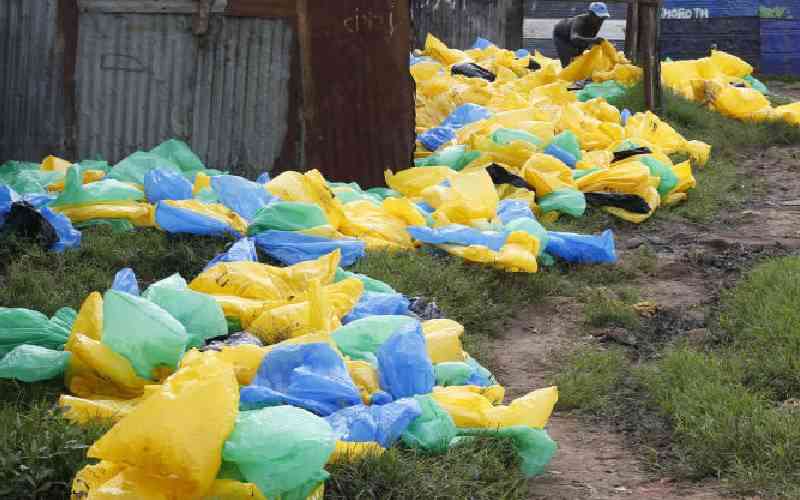×
The Standard e-Paper
Kenya’s Boldest Voice

Kenya's 2017 single-use plastic carrier and flat bags ban has helped to reduce plastic pollution. But smuggling of the bags from neighbouring countries threatens to reverse the hard-won gains.
Strengthening regional collaboration is key to securing durable solutions to plastic pollution and seizing emerging opportunities.